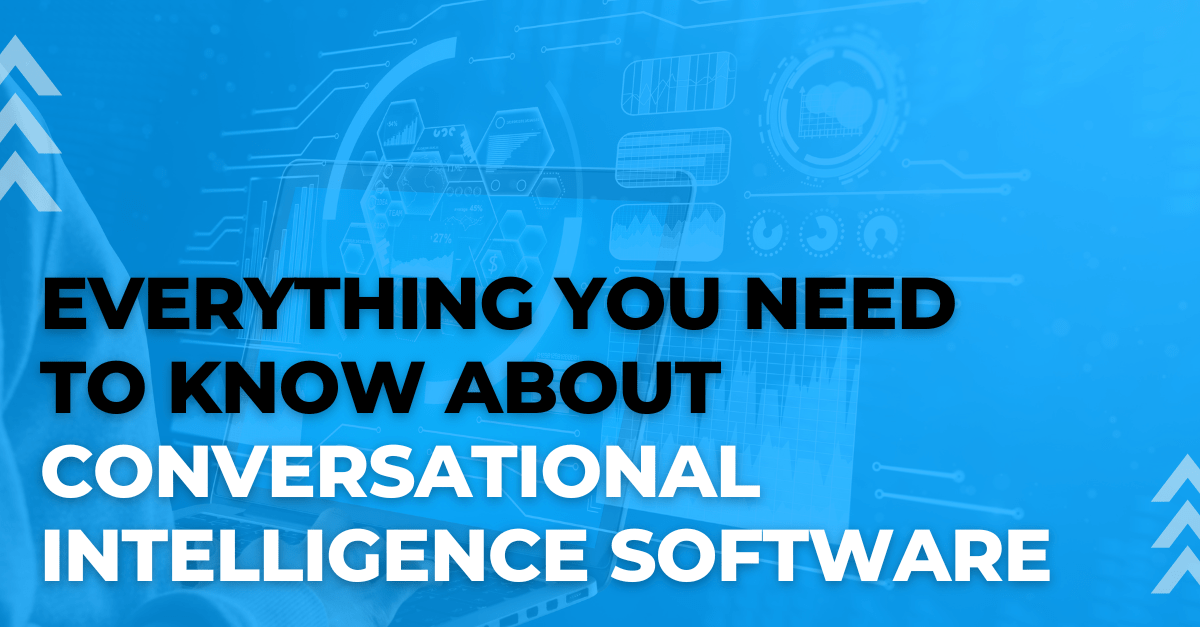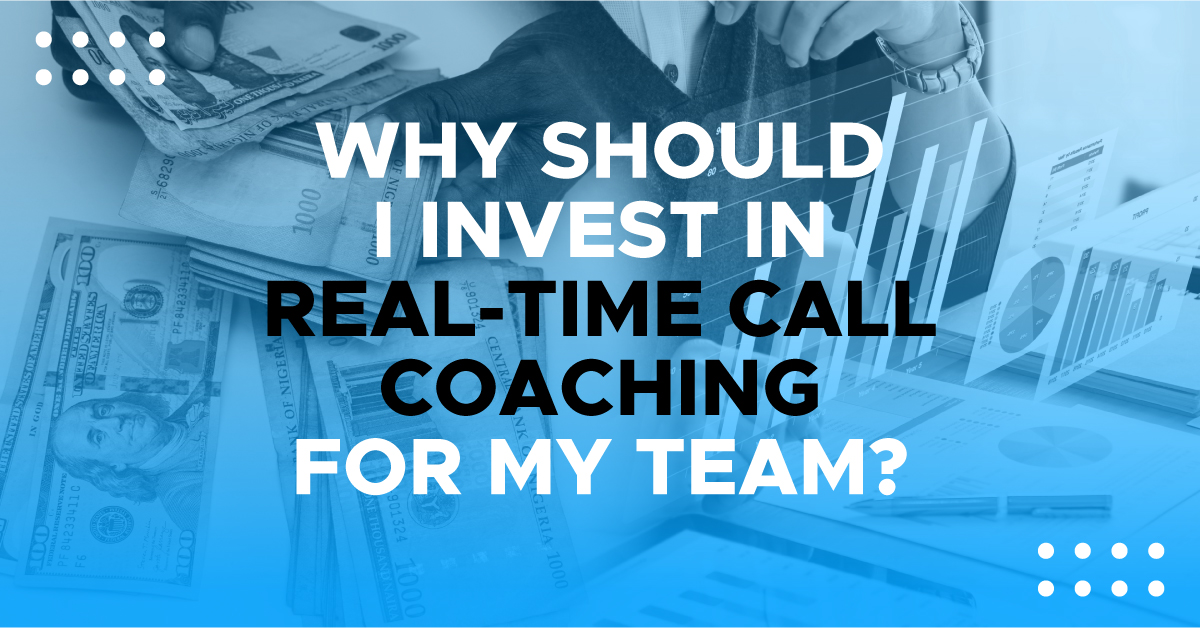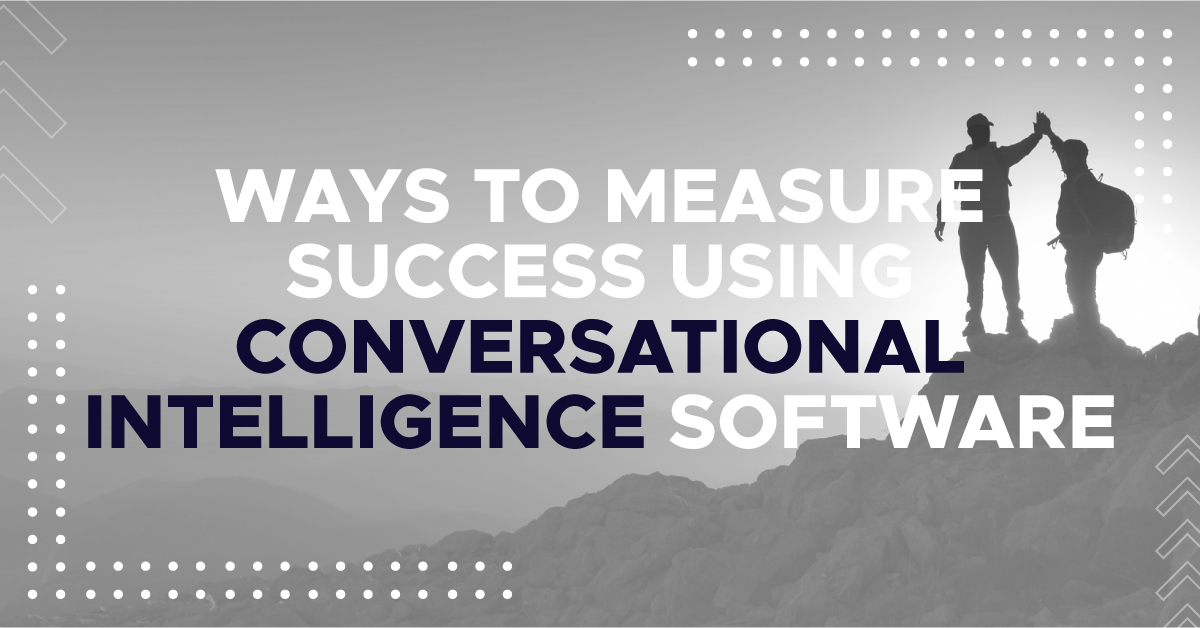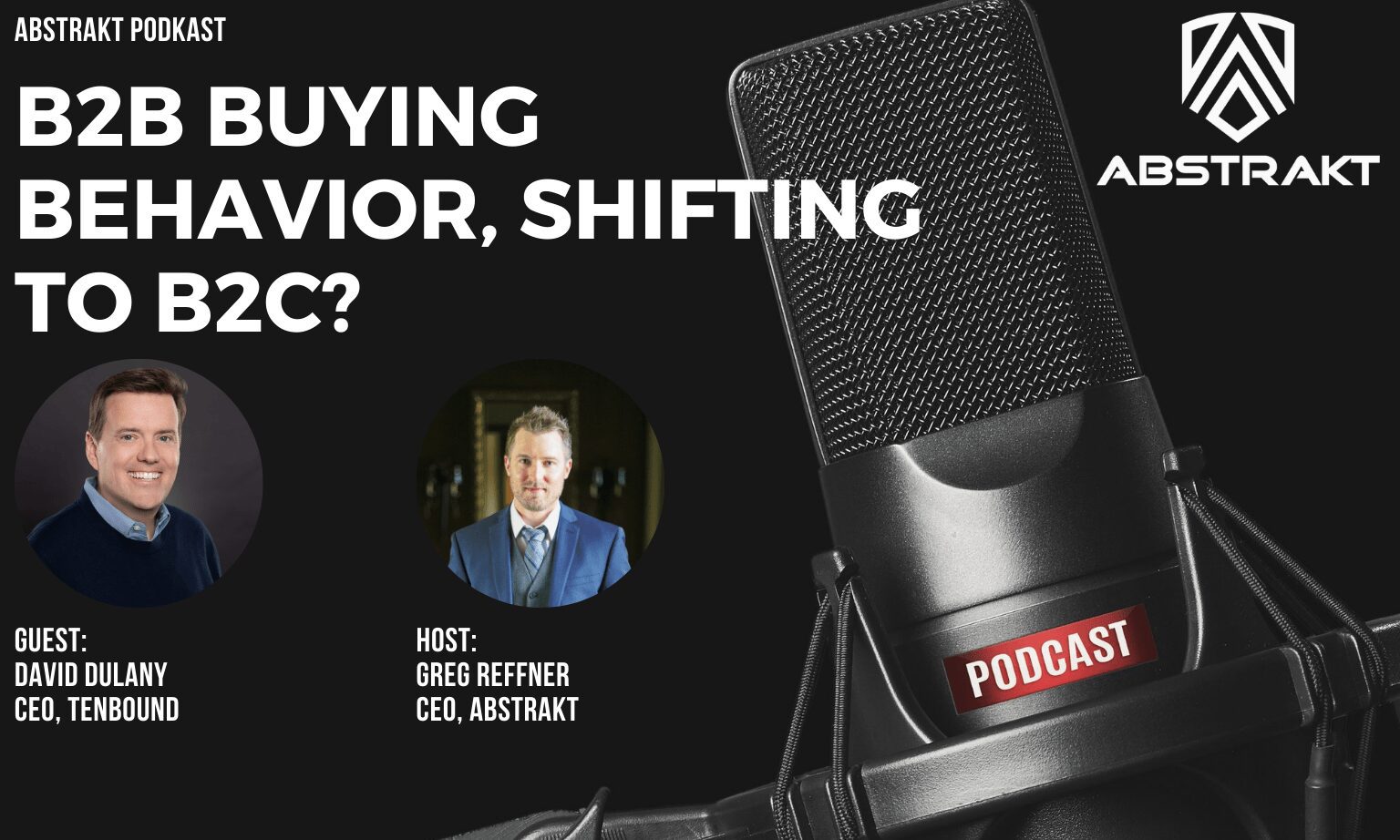-
Everything You Need To Know About Conversational Intelligence Software
Just as the title says. Everything you need to know about conversational intelligence software. Our last blog which had everything you need to know about real-time call coaching software was a hit. So we thought… Why not do the same thing for conversational intelligence software? Luckily, the conversation intelligence market has depth and a lot…
-
What Agent Coaching Software are you using?
Whether you manage a contact center or small team, call coaching software seems like it’s everywhere. How do you find the best agent coaching software that’s best for your team? You may have heard …
-
Why should I invest in real-time call coaching for my team?
With many companies adopting work from home technologies including video conferencing, coaching has become more than just listening to your reps speak over the phone ….. We are going to dive into a few critical components of your sales coaching tech stack to see if it is doing everything it can to fulfill your team’s…
-
Ways to Measure Success using Conversational Intelligence for Coaches
“What gets measured gets improved” – how many times have you said this as a coach, manager, trainer, or even just to yourself? If you are anything like me, probably a bunch. I have said it a bunch of times because it is true. What gets measured, does, in fact, get improved. A couple of…
-
Why your reps do not apply their sales training
The number one problem with any sales training is that we spend a great deal of time practicing, training, and honing our skills… but managers don’t always follow through on making sure the training is being applied. One reason is that there is not an unlimited amount of time in the day, but the other…
-
ValueSelling is not just about Sales
Companies are made up of many departments all working together with one central goal. How does valueselling apply to departments like Product Management, Sales Engineering, Channel? Where do things like titles come into play when building persona-based prompts such as playbooks and sales call frameworks?
-
Why Introverts Make the Best Sales Reps
Organizations that look to scale, should start to see the power of introverts in a sales culture because many introverted traits can be found in some of the most successful sales reps. One trait that is especially powerful is listening, which can help create rapport with clients. Another key trait is being able to synthesize…
-
Building with the Buyers Journey in Mind
I value what I would call the three P’s: the people, their processes, and their pain points. And understanding that second, is work with your account management team or whoever maintains that relationship with your customers.
-
Top 5 Signs You are Ready to Stop Being Reactive with Call Coaching
There is a very specific reason that stop signs, traffic lights and push notifications are red. When humans see red, their reactions become faster and more forceful. We, as humans, associate red with danger (think about the last time you saw someone get mad or angry, what color did their face turn?). So, it is…
-
The Subconscious Mind’s Secret
Stored in the subconscious mind are all your beliefs, memories, and life experiences. Now, while sales representatives can’t have access to someone’s dreams, knowing what steps to take to access their subconscious mind is absolutely doable. For anyone in a sales or support role, accessing the subconscious mind is critical. This is from where their…
-
Missing Sales Development Reps KPIs
Would you still put a Sales Development Representative on a Performance Improvement Plan if you knew that they consistently handled objections correctly, 90% of the time were able to get past the gatekeeper and consistently asked 80% of the qualifying questions they were supposed to? Here at ABSTRAKT, we are going to propose that you…
-
B2B Buying Behavior – Is It Shifting to B2C?
Consumerization of how people are buying software is the overarching theme of this podcast about Sales Development with David Dulany, Founder & CEO of Tenbound and Greg Reffner, Founder & CEO of ABSTRAKT. “It kind of dawned on me that the key to successful sales development, in general, is strong project management so you can apply…
Conversational Intelligence Platforms
Abstrakt was built to solve your problems.













